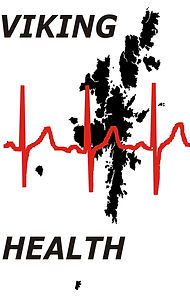VIKING Health Study

Professor Jim Wilson
University of Edinburgh
The SGP has sequenced 500 samples from the VIKING Health Study - Shetland, a richly phenotyped cohort study from the isolated archipelago in the north of Scotland.
The 2100 participants in the VIKING study already have genome-wide genotyping and over 200 phenotypes measured, as well as record linkage to NHS data on hospital admissions, cancer registrations, prescriptions and deaths.
The biobank of serum, plasma and urine is being used to add metabolomic and proteomic annotation (with further funding).
The genetic drift in isolated populations leads to an increased frequency of some otherwise rare variants - the “jackpot effect”. There is considerable evidence that some variants of low frequency have much larger effects on biomedical traits than is usual for more common variants. It is these rare variants of large effect which we seek in the SGP VIKING Whole Genome Sequencing study. We used the deterministic surrogate parents approach, to impute the new variants into the entire sample of 2100, before testing for association with all traits in traditional single marker tests, aggregate tests and applying regional heritability and linkage analyses. Variants of interest were prioritised for downstream functional characterisation. Further applications of the data will catalogue new homozygous human knockouts (known to be enriched in founder populations), contribute to a Scottish imputation reference panel, and investigate the potential to impute the entire population, and thus explore a new paradigm for identification of highly penetrant mutations as well as Mendelian carrier status.
More information about this research group's work is on their page on the MRC Human Genetic Unit's website.
You can also find out more here about how those involved with the SGP part of the VIKING study are helping research.

